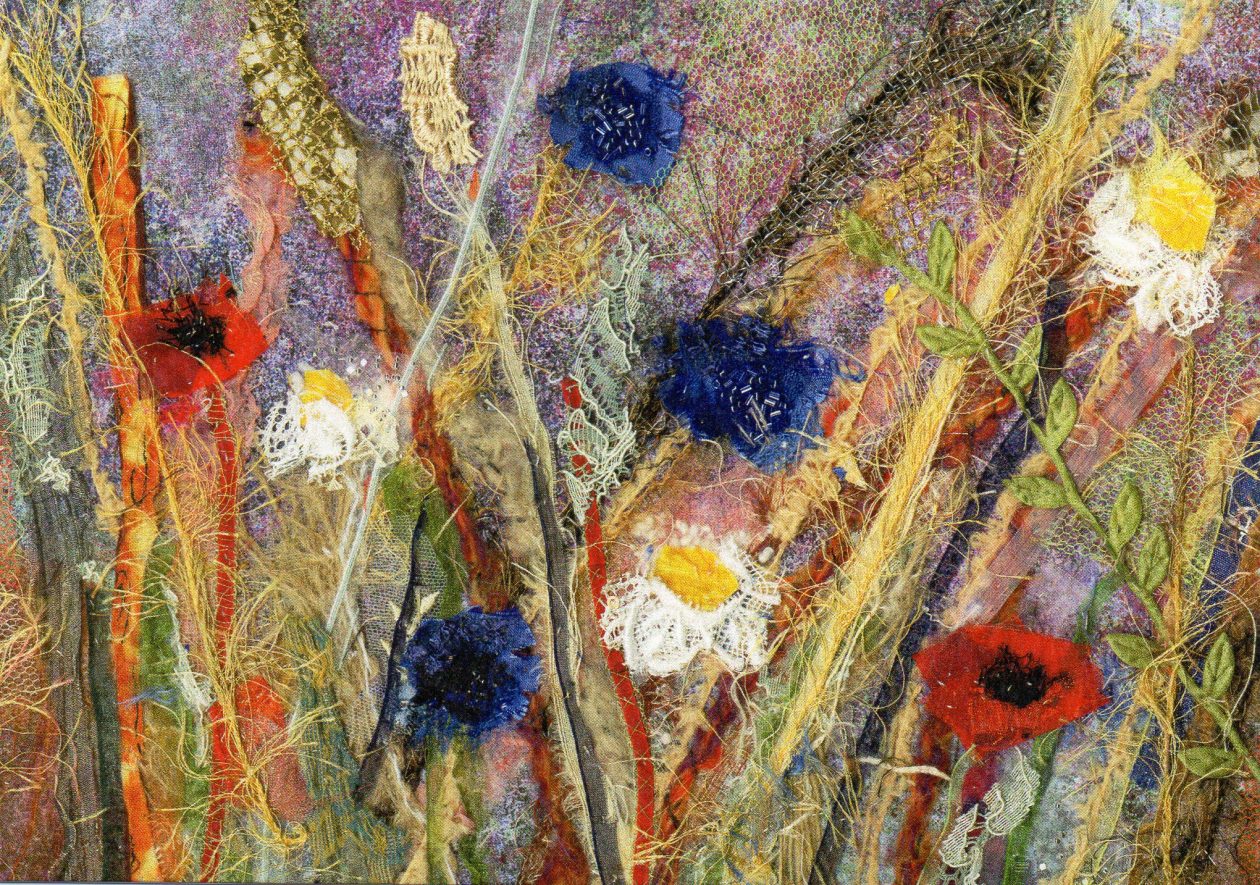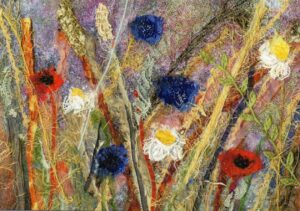
Part 2 MARK STATMAN: MEXICO AND THE POETRY OF GRIEF AND CELEBRATION
Part 2 of my interview with Mark Statman looks closely at Mark’s Latin American poetic influences, his life in Mexico and ends with an extract

‘Any level of guided imaginative activity teaches you just how difficult it is to reach mastery’.
![His_Master's_Voice[1]](https://leslietate.com/wp-content/uploads/2015/09/His_Masters_Voice1-300x215.jpg) I remember several creative people in my family. My grandpa on my mother’s side was a tenor who, I’ve been told, was invited to train in Italy but had to turn the opportunity down because he was a railway clerk with a family to support. On a trip to London he recorded his voice at HMV, Oxford Street, which had its own studio. Sadly, the 78 rpm disc he produced has gone missing. He conducted the local choir in his NE seaside town in performances of The Messiah, even changing churches to retain creative control. His wife was a skilled accompanist on the piano and also played the organ. They were like fire and water; he was the leader, she gave of herself and supported. Their front room was a busy place with leading members of the choir popping in, and recordings of Beethoven’s symphonies rising from the depths of the ‘Horn Cabinet’ which he and my dad built in the corner.
I remember several creative people in my family. My grandpa on my mother’s side was a tenor who, I’ve been told, was invited to train in Italy but had to turn the opportunity down because he was a railway clerk with a family to support. On a trip to London he recorded his voice at HMV, Oxford Street, which had its own studio. Sadly, the 78 rpm disc he produced has gone missing. He conducted the local choir in his NE seaside town in performances of The Messiah, even changing churches to retain creative control. His wife was a skilled accompanist on the piano and also played the organ. They were like fire and water; he was the leader, she gave of herself and supported. Their front room was a busy place with leading members of the choir popping in, and recordings of Beethoven’s symphonies rising from the depths of the ‘Horn Cabinet’ which he and my dad built in the corner.
My dad was very serious about classical music. It didn’t come from his family; he was entirely self-taught. He could knock out popular tunes on the piano, but Beethoven was his real love. Unfortunately his tolerance levels were low. So when he first heard Mahler as a result of a programme change at a concert he decided from then on that all ‘modern music’ was rubbish.
DIY was one of Dad’s skills. I have photos of him covered with grease lying under a small black Austin. He fixed appliances and rigged up his own version of double glazing. He was also a hobbyist. So he cut wood to make marquetry pictures, was a keen photographer, played chess and bridge, and started me on Airfix and Meccano models. His father collected cartoon books, clocks and fancy tin boxes. He knew lots of jokes and could recite all the capitals of the world. Granddad was naughty and competitive, cheated at cards and teased his wife with practical jokes.
So he cut wood to make marquetry pictures, was a keen photographer, played chess and bridge, and started me on Airfix and Meccano models. His father collected cartoon books, clocks and fancy tin boxes. He knew lots of jokes and could recite all the capitals of the world. Granddad was naughty and competitive, cheated at cards and teased his wife with practical jokes.
The women in the family would sit in deckchairs knitting on the beach. They made patchwork rugs, mended clothes, shopped and cooked, baked on tight budgets, and cared for children. My dad’s mother brewed fiery ginger beer. The jars stood maturing along a high shelf in her kitchen. Since housework was so much more demanding in those days, their activities were less flamboyant than the men, more bread-and-butter.
True, most of these activities were heavily sex-typed and some of them were similar to painting by numbers. But any level of guided imaginative activity teaches you just how difficult it is to reach mastery. I discovered how contorted a musician’s body has to be when I learned the piano at 40 and watched my son being taught the violin.
All this creative energy often seemed to go with eccentricity. So at school we had an English teacher nicknamed ‘Dracula’ who wore a long black cloak, and an RE teacher who set out to terrorise us with Old Testament rage and quotes from Oscar Wilde. At home my ultra-serious dad had a goon-crazy side where he’d imitate the voices of Peter Sellars, Spike Milligan and Harry Secombe.
Craziness was never far from the surface in such a conformist society, so my family engaged in long-running political arguments, often in deckchairs on the beach. Also there were numerous taboos, one of which my singing grandpa would break when he was drunk. In front of an audience he’d hold up a lit candle. Then he’d puff and splutter, pretending to have a lip deformity while trying, and failing, to ‘blew oot the candle’. This routine, making fun of disabled people, was common at that time in the NE. No one saw how unpleasant it was.
What I see now when I look at photos of my busy family is their drive to stand out. Their stamp albums, knitted hats and record collections were flags to be waved. There was an eagerness and perfectionism about everything they did, a desire to do well and get top marks. They were keen to fit in and yet determined to be different. And they cultivated their own patch as if their lives depended on it.
 But my main point is that all these hobbies and activities involved a creative spark. They all took time and effort and stretched people in one way or another. What I think now is that ‘being creative’ or ‘using your talents’ isn’t necessarily about choosing something with high-art status. Some people suit caring or listening or DIY and some are better at writing novels. When everyone has to be a singer or writer it’s bad news for society. What matters is finding out what’s best for you.
But my main point is that all these hobbies and activities involved a creative spark. They all took time and effort and stretched people in one way or another. What I think now is that ‘being creative’ or ‘using your talents’ isn’t necessarily about choosing something with high-art status. Some people suit caring or listening or DIY and some are better at writing novels. When everyone has to be a singer or writer it’s bad news for society. What matters is finding out what’s best for you.
ABOUT LESLIE TATE’S BOOKS:

Part 2 of my interview with Mark Statman looks closely at Mark’s Latin American poetic influences, his life in Mexico and ends with an extract

I interviewed international poet and translator Mark Statman about Volverse/Volver, his 14th published collection. Mark, who has won national arts awards, is Emeritus Professor of Literary

I interviewed Lisa Dart, finalist in the Grolier, Aesthetica and Troubadour Poetry Prizes and author of The Linguistics of Light (poems, Salt, 2008), Fathom (prose

I interviewed writer Julia Lee Barclay-Morton about her experience of autism. Julia began as an experimental dramatist in New York, moving to the UK to

I interviewed Gillean McDougall from Glasgow, who edited the collaborative projects Honest Error (on Charles Rennie Mackintosh and his wife Margaret Macdonald) and Writing the
| Cookie | Duration | Description |
|---|---|---|
| cookielawinfo-checkbox-analytics | 11 months | This cookie is set by GDPR Cookie Consent plugin. The cookie is used to store the user consent for the cookies in the category "Analytics". |
| cookielawinfo-checkbox-functional | 11 months | The cookie is set by GDPR cookie consent to record the user consent for the cookies in the category "Functional". |
| cookielawinfo-checkbox-necessary | 11 months | This cookie is set by GDPR Cookie Consent plugin. The cookies is used to store the user consent for the cookies in the category "Necessary". |
| cookielawinfo-checkbox-others | 11 months | This cookie is set by GDPR Cookie Consent plugin. The cookie is used to store the user consent for the cookies in the category "Other. |
| cookielawinfo-checkbox-performance | 11 months | This cookie is set by GDPR Cookie Consent plugin. The cookie is used to store the user consent for the cookies in the category "Performance". |
| viewed_cookie_policy | 11 months | The cookie is set by the GDPR Cookie Consent plugin and is used to store whether or not user has consented to the use of cookies. It does not store any personal data. |